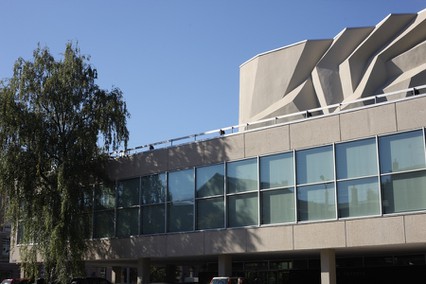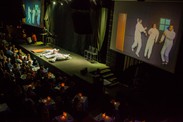Description
An actor communicates a character and/or situations to an audience through speech, body language and movement. This usually involves interpreting the work of a writer under the instruction and support of a director, although some work may require the actor to devise a character or improvise the reactions of a character to a situation.
Work varies enormously, from live stage performances of the classics and community theatre to soap operas, radio work and film parts.
Tasks:
- Attend auditions and casting calls in order to audition for roles.
- Collaborate with other actors as part of an ensemble.
- Learn about characters in scripts and their relationships to each other in order to develop role interpretations.
- Perform humorous and serious interpretations of emotions, actions, and situations, using body movements, facial expressions, and gestures.
- Portray and interpret roles, using speech, gestures, and body movements in order to entertain, inform, or instruct radio, film, television, or live audiences.
- Sing and/or dance during dramatic or comedic performances.
- Study and rehearse roles from scripts in order to interpret, learn and memorize lines, stunts, and cues as directed.
- Work closely with directors, other actors, and playwrights to find the interpretation most suited to the role.
- Manipulate strings, wires, rods, or fingers to animate puppets or dummies in synchronization with talking, singing, or recorded programs.
- Work with other crewmembers responsible for lighting, costumes, makeup, and props.
Key skills for actor:
- Talent and creativity
- Good teamworking skills
- Versatility and adaptability
- Discipline, resilience and a hard-working attitude
- Good memory, for learning parts quickly
- Reliability and punctuality
- Willingness to accept, and learn from direction and feedback.
Average Salary (2013):
United Kingdom: £37,500 year
United States of America: $4,323 month
Australia: AU$48,500 year
Qualifications and training required:
Most actors have spent time on a training course at a university or drama school. With luck, experience and determination it may be possible to find work without training, although this is less common. At drama school or university you could study towards a qualification such as a diploma, foundation degree, or degree. Relevant subjects could include: performance studies, contemporary theatre and performance, acting, musical theatre, drama.
You would usually need to pass an audition to get into drama school or university. You should check with universities and drama schools for exact entry requirements as other qualifications and experience may also be accepted.
Acting is a very competitive profession. You will need to be determined, develop your skills and get as much practical experience of acting as possible. Ways that you could do this include taking part in: amateur, community or youth theatre, actors’ workshops, summer schools and part-time classes.
Companies in profession
Best students in profession
Professions you might be interested in
Virtual internship
Company recommended study programs
VSIA Daugavpils teātris
1 recommendations
Dramatiskā teātra aktiera māksla
Latvijas Kultūras akadēmija
- 1 company recommendations




